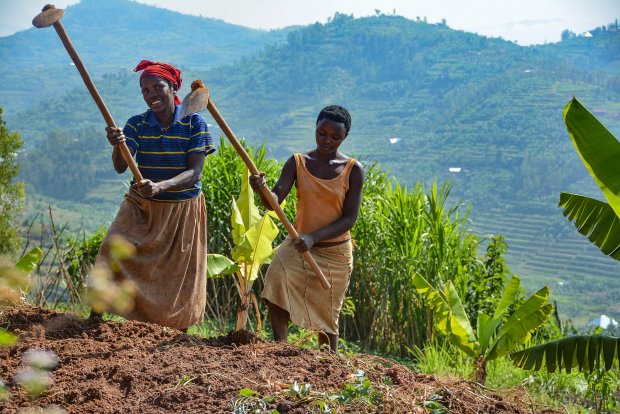The United States Agency for International Development (USAID) last week launched a new Sh28bn project to support over 200,000 farmers grow at least 50 per cent more crops on the same amount of land by promoting sustainable use of fertilizers, improved seeds and watering practices.
With more crops per hectare, farmers will have more money and greater food security.
Rwanda’s staple food is mainly Irish Potatoes, but maize is one of the foods sustaining families both for income and intake together with beans and potatoes.
The project, called Feed the Future Rwanda Hinga Weze, will be implemented over five years in 10 districts across Rwanda.
Hinga Weze will also provide pest management training, affordable safe-insecticide, and spraying equipment to help farmers combat the invasive Fall Armyworm pest that infested 17,521 ha of crops out 60,000 ha in 2017.
Related
USAID funds automated air drier to boost factory’s processing capacity
USAID predicts great year-end for pastoralists
Research organization introduces push-pull technology to stop fall armyworm
The project will also bolster the resilience of Rwanda’s agricultural sector to a changing climate. By the end of the project, over 600 new hectares of farmland will be fitted with new irrigation infrastructure.
The new USAID-funded project will also improve the nutrition of hundreds of thousands of pregnant women and young children across Rwanda, who are vulnerable to stunting. That’s because the Hinga Weze will partially focus on the cultivation of highly nutritious foods, such as orange fleshed sweet potatoes and high-iron beans, and will train families and communities on preparing nutritious meals.

Farmers in Rwanda preparing their fields. Photo:Courtesy
According to the Food and Agriculture Organization of the United Nations, the levels of stunted children under the age of five in Rwanda dropped to 36.7 per cent in 2015 from 43 per cent in 2012.
The project launch in Bugasera District was attended by the U.S. Ambassador to Rwanda, Peter Vrooman, the Minister of State in Charge of Agriculture, Fulgence Nsengiyumva, other Government of Rwanda representatives, agribusinesses, farmers and others.
Hinga Weze will be implemented in the following 10 districts: Gatsibo, Kayonza, Bugesera, Ngoma, Nyabihu, Rutsiro, Ngororero, Nyamasheke, Karongi, and Nyamagabe.
More than 90 per cent of Rwanda’s population depends on agriculture to sustain their livelihoods.
















Comments powered by CComment